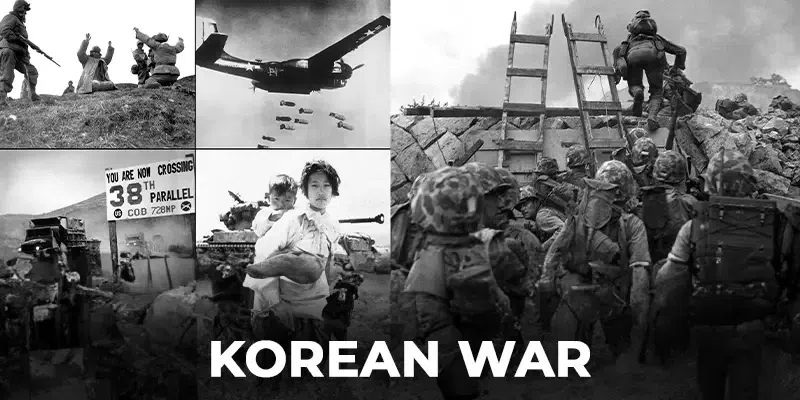quebec-oui.org – The Korean War, a pivotal conflict of the 20th century, erupted when the Korean Peninsula was split into two ideologically opposed states following the end of World War II. This war, which lasted from 1950 to 1953, was not just a military confrontation but a crucible that shaped the destiny of Korea and had far-reaching implications for global geopolitics. It was a war that saw the United Nations intervene for the first time in a military conflict, pitting the North, supported by China and the Soviet Union, against the South, backed by the United States and its allies.
The Origins of the Conflict
The roots of the Korean War can be traced back to the end of Japanese occupation in 1945, which led to the peninsula being divided along the 38th parallel. The North was occupied by Soviet forces and established a communist government under Kim Il-sung, while the South, occupied by American forces, became a capitalist state under Syngman Rhee. Both leaders claimed sovereignty over the entire peninsula, leading to increasing tensions and skirmishes along the border.
The Outbreak of War
On June 25, 1950, North Korean forces crossed the 38th parallel, swiftly overrunning South Korean defenses and capturing Seoul. The United Nations, led by the United States, intervened to support South Korea, while China and the Soviet Union backed North Korea. The conflict escalated into a global confrontation, with both sides committing massive military resources.
The Impact on Korea and the World
The Korean War had a profound impact on Korea, physically transforming the landscape and causing immense human suffering. Millions of Koreans were killed or displaced, and the peninsula was devastated by the fighting. However, the war also laid the groundwork for South Korea’s remarkable economic and political transformation in the decades that followed.
Globally, the Korean War solidified the Cold War division of the world into two ideologically opposed blocs. It also marked the beginning of a significant American military presence in Asia, setting the stage for future conflicts in the region.
The Legacy of the War
The Korean War ended with an armistice in 1953, not a peace treaty, leaving the two Koreas technically still at war. The Demilitarized Zone (DMZ) became one of the most heavily fortified borders in the world. Despite periodic tensions and hostilities, there have been efforts at reconciliation and peacebuilding, reflecting the enduring desire for reunification among the Korean people.
The war’s legacy is also evident in the resilience and rapid development of South Korea, which transformed from a war-torn country into one of the world’s leading economies. North Korea, on the other hand, remains isolated and impoverished, with its people suffering under a repressive regime.
Conclusion
The Korean War was a defining moment in modern history, shaping the destiny of Korea and influencing global politics for decades. Its legacy is a reminder of the human cost of conflict and the enduring hope for peace and reunification on the Korean Peninsula. As the world continues to grapple with the challenges of division and conflict, the lessons of the Korean War remain as relevant as ever.
